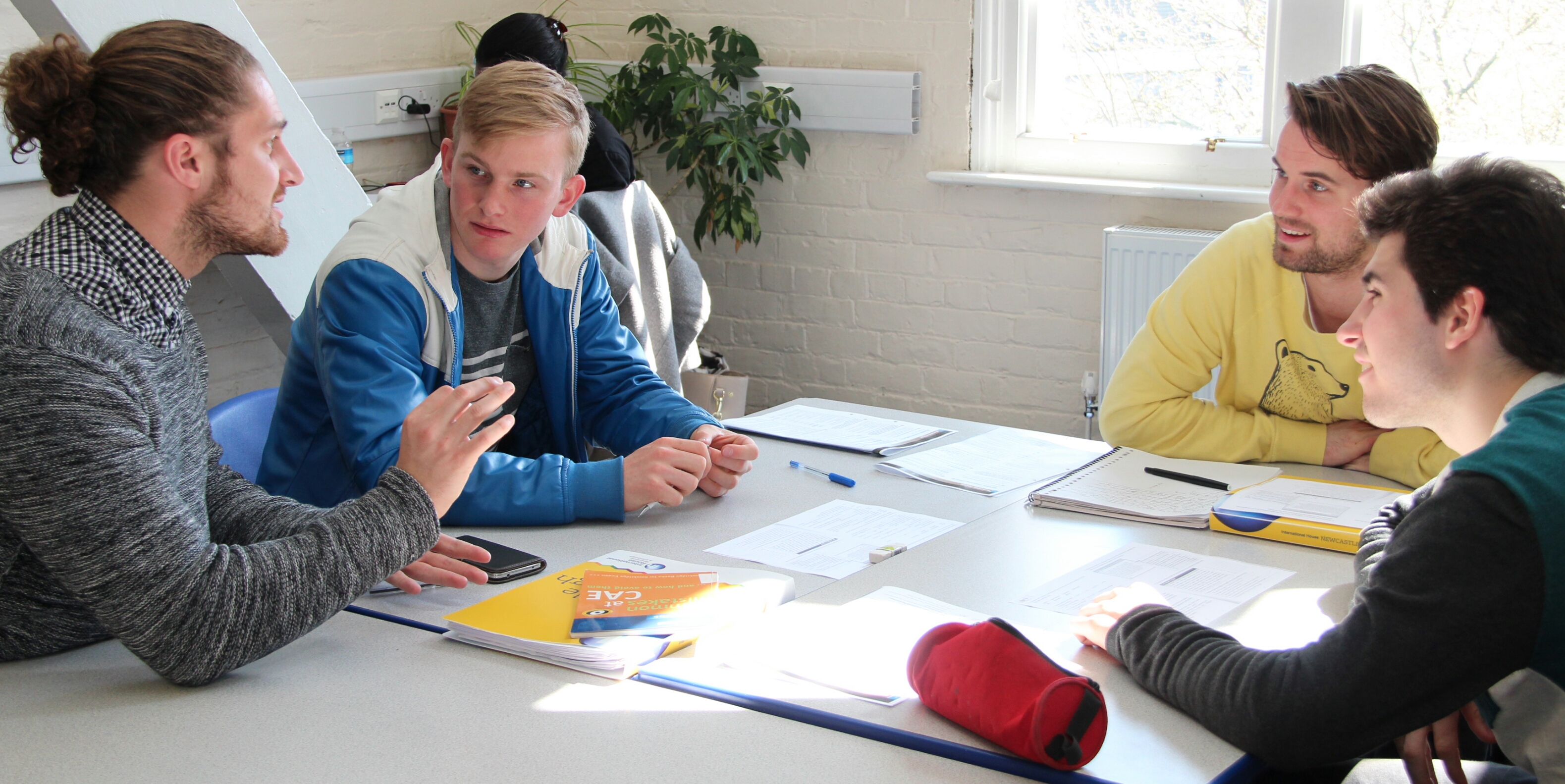About the teacher training centre
International House (IH) Newcastle is in a Grade I and II listed building. It has 16 classrooms with access to a large Personal Study Programme computer suite as well as a spacious students' room/café. The school is in the heart of the city, close to a wide choice of shops, restaurants, cafes and bars.
IH Newcastle is one of the most prestigious teacher training centres in the UK and has offered training to over 5,000 teachers since 1990.
All our trainers are CELTA and DELTA qualified and specialise in English language as well as a range of specialist teachers’ courses including; CLIL (Content and Language Integrated Learning) for state school teachers, Advanced Methodology and EAL (English as an Additional language) courses.

What is the CELTA?
The CELTA is a TEFL qualification which prepares you to teach English as a foreign language. You don’t need any existing English language teaching experience or training. It’s usually a 4 or 5 week full time course (but you can also take it part time).
Standing up in front of a class for the first time is a daunting prospect, so you need to make sure you have the skills you need to teach effectively. The CELTA prepares you for the classroom in these ways:
- Taught sessions on methodology, lesson planning, language analysis and language skills. (In total, you’ll have 120 hours of input.)
- The opportunity to observe experienced teachers in real-life language classroom situations – so you can see the different skills and techniques they use.
- Teaching yourself – with helpful and detailed feedback from your tutors. This practical experience is invaluable when you start your first job.
You’ll have to complete some written assignments as well, but when it’s all successfully completed you’ll be ready for your first job and first students!
Read more about the CELTA here
CELTA at IH Newcastle
We have a dedicated team of six CELTA tutors, meaning we have a wealth of expertise which we share between us. There’s no question we can’t answer, and a lot of varied experience between us which we can draw on.
We pride ourselves in being a ‘demand high’ centre – this is what different Cambridge Assessors have said about us. Although, of course, our aim is to get trainees the Pass Grade they need (and deserve), we also want to equip them as much as possible for the realities, challenged and joys of teaching beyond the course. We’re not just about ticking off criteria – we want to train good, effective teachers who know what they’re doing in the classroom, ready for their first teaching job.
We run CELTA courses alongside our General English and other English courses, so trainees see and feel what it’s like to be part of an active language school. We have ‘live’ observations, chance to talk to our teachers, and engage with our students. Teaching and training go hand in hand here.
Based on students’ feedback, we believe that our community sense makes students feel at home, starting with a friendly welcome in their arrival and extending to the great and encouraging atmosphere they find in the classrooms.

What will fellow students be like?
We have a real mix of trainees – no course is ever the same in terms of ages, nationalities, or reasons for taking the course. With two huge universities, as well as being a strong local hub, Newcastle is an eclectic city and attracts people from all over the world. Some trainees are studying at university (or have just graduated), some are doing MA TESOL at Durham, some are local and wanting a career change, some are entering retirement and looking for something new.
Tutors at this training centre
Rachel Halsall, Head of Teacher Training
Teaching English can equip students with the skills and qualifications that they need to really make a difference to their own lives, and those of their families and communities. It’s a passport to a better life for many people. The more teachers – and the more good teachers we have – the more that can happen.
Adam Fallows
I really enjoy the camaraderie that can be fostered within a class. It sets EFL apart from many other careers and I believe it’s important for a trainer to be approachable, collaborative and understanding.
Sally Muse
I hope to equip trainees with the skills, techniques and ideas that will help them as they move into teaching English post-course. I hope to light a spark of passion for teaching and studying language and so trainees can approach their teaching with enthusiasm, excitement and inspiration.
CELTA student testimonials
There were lots of reasons why I loved the course, but the primary ones would have to be the staff and the students. All of the tutors were incredibly helpful and willing to spare any moment to help with lesson planning or just to have a chat about things. The students were all so lovely and always eager. It was great to learn about everyone’s culture and their reasons behind wanting to learn.
The course has been very useful for me as it has put me in good stead for jobs in the future. I have an interview lined up to work in a refugee centre and this would not be possible without this qualification as they only accept CELTA students.F Boyle
I knew CELTA because my former employer New Oriental (XDF) recommended it to all of the teachers. Also I’d realised it would be an advantage if I got a CELTA qualification when I’m applying for a senior teaching position in China. Most importantly, after working for 5 years, I thought I needed to learn something new.
I do like all the tutors because they’re so understanding, helpful and with loads of teaching and training experience. Besides, the course is definitely well-structured and practical. It’ll teach you all you need in the real classroom step by step. What’s more, I like the self-reflection and peers’ feedback, which gave me the opportunity to reflect and realise my strengths and weaknesses.
What you thought of the communicative language approach that the course is based on and why you think it’s important to embrace it. Before I took the course, I kind of took ‘the teacher-centered way’ for granted since I was taught in that way. Honestly, it did take me sometime to accept the notion of ‘communicative language approach’ until I observed one class taught by my colleague, Sarah. She created a context for students to be the ‘doctor’ and ‘patient’ roles. That’s when I started to realise language should be based on ‘communication’ instead of single words or phrases. Most importantly, teachers like us won’t be competitive if we teach the same ways as the teachers in public schools in China.
Li Chen


